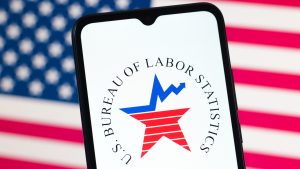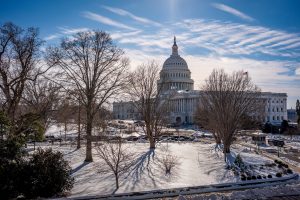Judges deny government access to Columbia protesters’ Instagram data

The Trump administration attempted to obtain a search warrant related to a social media account run by student protesters at Columbia University, and failed, according to newly unsealed court documents obtained by The Intercept. Officials targeted an Instagram account run by students from Columbia University Apartheid Divest, or CUAD, in the warrant.
The warrant was broad. It wasn’t just trying to identify who ran the CUAD account, but also aimed to gather information on everyone who had interacted with the account, including those who followed it, liked posts, commented, or messaged, going back to January 2024.
Judges reject warrant over First Amendment concerns
Federal prosecutors and the FBI tried to get a search warrant in March. However, a magistrate judge rejected the request three separate times in March, citing First Amendment protections. After being denied, the investigators appealed the decision to a district court judge, who agreed with the magistrate and denied the request.
“It is unusual for a magistrate judge to reject a search warrant application from the government,” F. Mario Trujillo, a staff attorney at the Electronic Frontier Foundation, said in an emailed statement to The Intercept. “And it is even more unusual for the government to try and appeal that decision to a district court judge, who again rejected it. That speaks to the lack (of) probable cause in the warrant application.”
Unsealed records reveal details of legal dispute
The newly unsealed documents related to the government’s search warrant attempt include transcripts and filings. Officials initially kept the entire process “under seal,” preventing the public from viewing the documents, which is standard procedure.
The court made the documents public on Tuesday, June 3, after The New York Times filed a case in May demanding transparency — a move The Intercept also supported.
Government claimed Instagram post was a threat
For about a month, the government tried to convince judges that an Instagram post made on March 14 by the account @cuapartheiddivest was illegal.
The post by CUAD showed a photo depicting Columbia’s presidential mansion vandalized with a bright red substance resembling blood, with the words “FREE THEM ALL” and an upside-down triangle.
The accompanying caption on the post read in part, “The university’s repression has only bred more resistance, and Columbia has lit a flame it can’t control. Katrina Armstrong you will not be allowed peace as you sic NYPD officers and ICE agents on your own students for opposing the genocide of the Palestinian people.”
The alleged target of the threat was Katrina Armstrong, who was the interim president of Columbia University at the time, court filings show.
The government argued the post was a “true threat,” not just harsh criticism or protest speech, arguing Hamas militants use the inverted triangle symbol as a way to mark certain people or buildings as targets for violent attacks.
“Additionally, the court incorrectly invoked First Amendment concerns to deny the warrant, disregarding established precedent that true threats—statements that a reasonable person would interpret as serious expressions of intent to commit violence—fall categorically outside constitutional protection,” the government argued in one of its filings.
ACLU attorney supports court’s decision
The Intercept spoke with Brian Hauss, an attorney with the American Civil Liberties Union, who agreed with the judge’s decision to deny the government’s request for a search warrant. Hauss stated that CUAD’s Instagram post did not constitute a true threat, as it lacked a clear and specific intent to cause harm.
“And there is no evidence that President Armstrong or members of the Columbia community understood CUAD’s Instagram message to convey an intent to commit violence,” Hauss told The Intercept.





